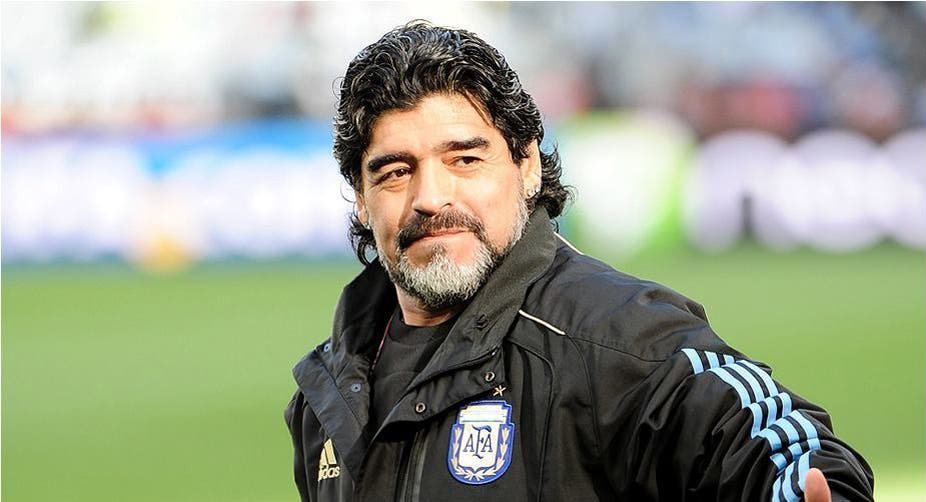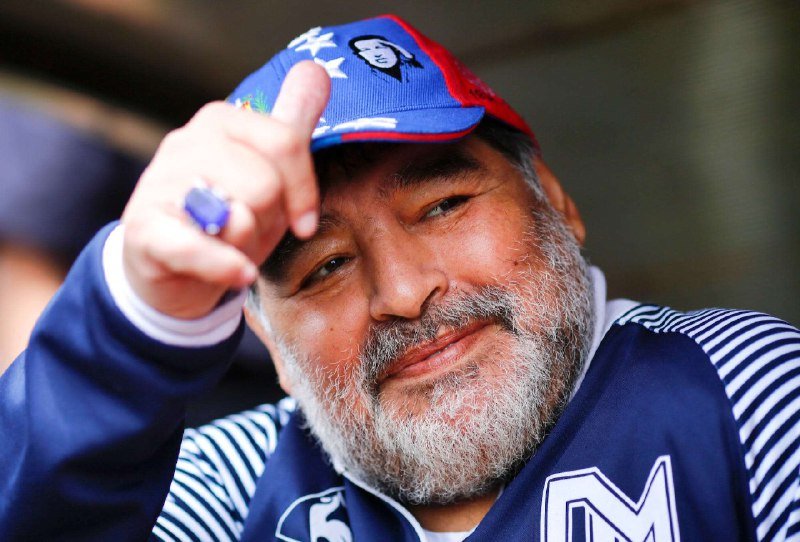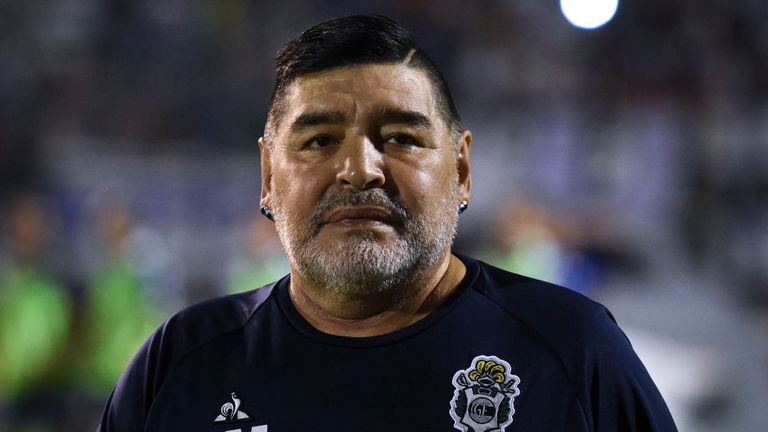In 1982, I watched my first ever World Cup, hosted by Spain. During the tournament, my favourite team was Brazil.

With an array of talented stars such as Zico, Eders, Socrates, Junior, Falcao and a host of others, the Brazilians were a wonder to watch. Ironically, it was the less fanciful but efficient Italians that eventually won the tournament, with deft goal-poacher, Paolo Rossi, emerging the star of the tourney.
Paradoxically, it was during that competition that a star was born. But the star did not shine. The star was Diego Armando Maradona. Then, a 22-year-old, Maradona was playing at his first senior World Cup. It was a rough one for him. It did not end as he would have loved.
He was young, raw, talented and hungry for success, but fate dealt him a fatal blow. He was shown a red card in Argentina’s match against their archrival, Brazil, and that was the end of the road for him at the 1982 World Cup.
However, four years later, in Mexico 86, Maradona shone like the proverbial northern star, as he captained the Argentine national team to victory, winning the final match against the then West Germany.
With his unbelievable skill, Maradona asserted his dominance and was the most dynamic player of the competition. He played every minute of every Argentina game, scoring five goals and making five assists.
Read Also: Napoli Stadium, Argentine Football League Renamed After Maradona
It was, however, during the quarter-final match against England that every doubt about Maradona’s rise to prominence as the then Best Player in the world faded out.

Diego Amando Maradona
Even his most vociferous critics wouldn’t deny his unrivalled brilliance as a football player. After scoring two contrasting goals in the 2-1 quarter-final win against England, his legend was effectively concreted.
The sheer class of his second goal, especially, and the notoriety of his first led to the French newspaper, L’Equipe, describing Maradona as “half-angel, half-devil”.
Though he fooled the referee, replays later showed that he scored the first goal by cleverly punching the ball with his hand.
After the match, when journalists drew his attention to the matter, Maradona was coquettishly slippery, labelling it as “a little with the head of Maradona and a little with the hand of God”. That was what gave rise to his infamous “hand of God’ reference.
In spite of obviously cheating to score the first goal in that memorable match against England, thereby breaking several English fans’ hearts, the sheer artistry and class displayed by Maradona en route scoring the second goal, plainly overshadowed the deceitful manner of the first.
Read Also: Amazing Things To know About Diego Maradona
In the 55th minute, he collected the ball in the Argentine half and carved his way through the England defence, as if it wasn’t existing, striking a low hard shot. It was one of the greatest goals of all time.
Maradona went on to play 91 times for his country, won two Serie A (Italian league) titles with Napoli, a relatively unknown team that he practically carried on his shoulders, and also played for Barcelona, Sevilla, Boca Juniors and Newell’s Old Boys.
He became the coach of Argentina’s national football team in November 2008. He was in charge of the team at the 2010 World Cup in South Africa, before leaving at the end of the tournament. He then coached Dubai-based club Al Wasl in the UAE Pro-League for the 2011–12 season.
In 2017, Maradona became the coach of Fujairah, before leaving at the end of the season. In May 2018, he was announced as the new chairman of Belarusian club Dynamo Brest.
Read Also: Messi, Ronaldo Pay Last Respect To Argentine Legend Maradona
He arrived in Brest and was presented by the club to start his duties in July. From September 2018 to June 2019, he coached the Mexican club, Dorados, and later became the coach of Argentine Primera División club, Gimnasia de La Plata, in 2019.
As immensely talented as he was on the football field, Maradona was a disaster off the pitch. He had little or no regard for the rules of life.
In spite of being a football prodigy of note, he wasn’t much of a role model, as he enmeshed himself in lots of controversies, mostly as a result of his addiction to drugs.
He personified the eccentricity of his country, as Clarín, an Argentine newspaper, noted: “Maradona is the two mirrors, that in which it’s a pleasure to regard ourselves and that which shames us.”
Born in Lanús Argentina, but raised in Villa Fiorito, a shantytown on the southern outskirts of Buenos Aires, Maradona failed drugs test for cocaine after the 1990 World Cup final in which Argentina lost the final with 3-2 against West Germany, and was banned for 15 months.
Read Also: Autopsy Result To Ascertain Cause Of Maradona’s Death Revealed
At the 1994 World Cup, in the United States, Maradona was back for a moment by scoring a goal against Greece in the group stage. After that match, he was sent home for failing another drug test.
Source: PUNCH
Post Disclaimer
The opinions, beliefs and viewpoints expressed by the author and forum participants on this website do not necessarily reflect the opinions, beliefs and viewpoints of Anaedo Online or official policies of the Anaedo Online.

